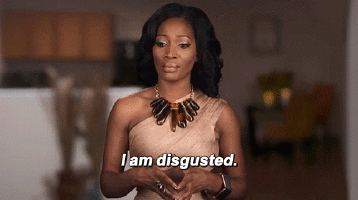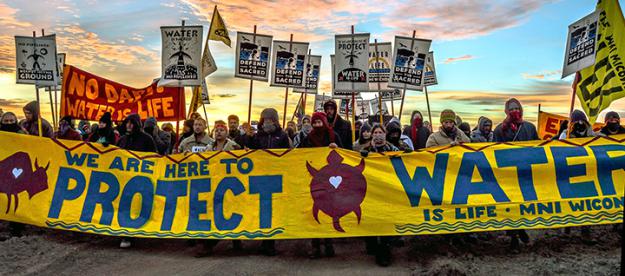As the movement has grown, we've seen in begin to include, celebrate, and discuss topics including curves, stretch marks, tummy rolls, body hair, makeup, and breast size. We've seen, and could still stand to see more, women of color, queer women, trans women, Muslim women, and women with disabilities speak out about their unique bodies. These intersections of race, class, ability, gender, and sexuality need to be further explored in the body positivity movement. We still need to continue to dismantle eurocentric beauty standards. Not all the models and faces of the body positivity should be white, cis, straight women. We need to speak out on and celebrate trans bodies, butch bodies, femme bodies, men's bodies, old bodies, bodies with disabilities and/or chronic illness, bodies that adhere to religious beliefs/attire, bodies of those who can't afford braces or acne treatment.
Yet, while I see these critiques of the body positivity movement, while I see the call to action to make it more diverse and explore these intersectional issues, there is consistently one thing I see missing. I do not mean to say that this missing thing is more important than those other intersectional issues. We still have much work to do within the body positivity movement regarding diversity. However, this topic needs to be addressed in these critiques, as well.
And that is STDs and STIs.
Some may argue that these issues belong to the sex positivity movement. And they do. But they also belong in the body positivity movement. STDs/STIs are so intimately linked to the body and they need to be addressed. We need to dismantle the negative stigmas, prejudices, self-hatred, and abuse surrounding STDs/STIs.
___________________________________________________________________________
STDs/STIs are so intimately linked to the body and they need to be addressed.
____________________________________________________________________________
We are taught from a young age that STDs/STIs are dirty, scary, shameful, embarrassing and only low class, "slutty" people get them. Certain STDs/STIs are the brunt of classist, sexist, racist jokes about sex workers, promiscuous women, women from the "hood", etc. The fear-based method of teaching about STDs/STIs often translates into hatred, loathing, and fear of one's body after they contract something.
The negative stigmas around STDs/STIs often make people feel like their body is disconnected or foreign to them. It makes people feel like their body is dirty, tainted, or ruined. But STDs/STIs do not make your body unlovable, unworthy, dirty, or shameful. It is hard to remember these things when society treats STDs/STIs with such negative, prejudicial stigmas. It's also hard to remember these things when you're newly diagnosed, having an outbreak, or experiencing an increase in symptoms that directly affect your body.
___________________________________________________________________________
When we say "all bodies are beautiful,"
we need to include the ones with STDs/STIs.
____________________________________________________________________________











